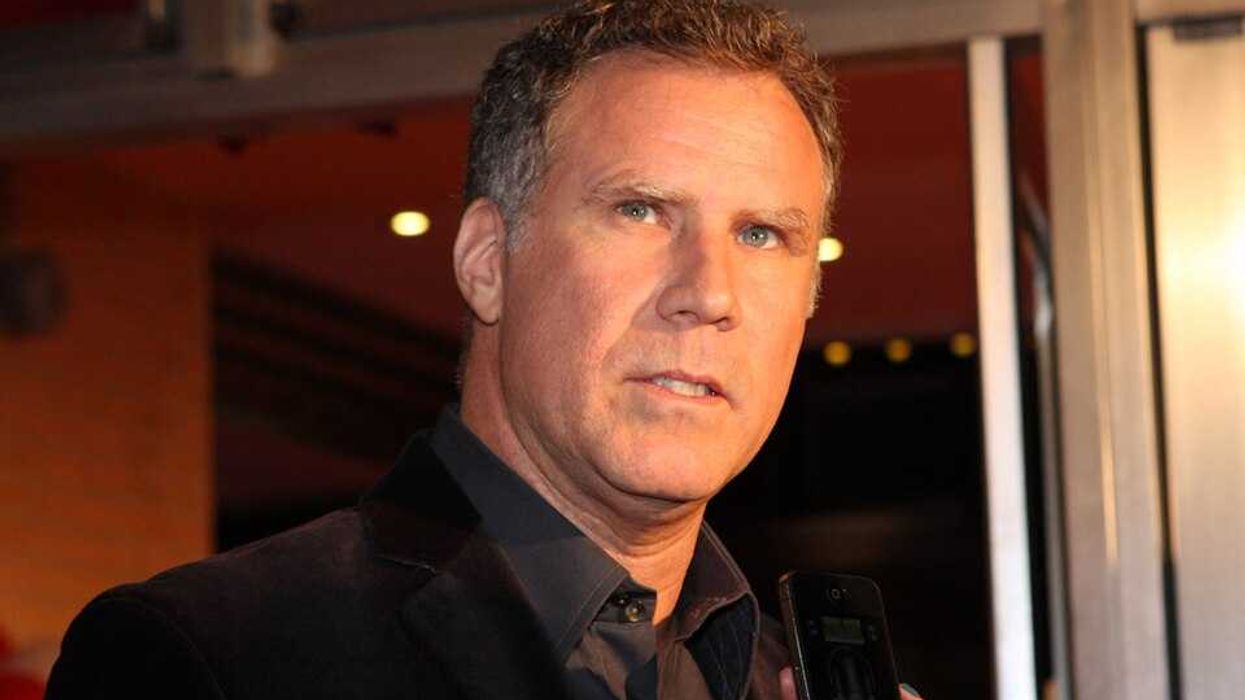Over the course of the next two weeks, we will be publishing primers about the important items on the ballot in California as part of our GOOD Voter Guide.
Propositions are amendments to the California State Constitution. If over 50 percent vote “yes,” the Constitution changes.
Prop 19: Regulate, Control and Tax Cannabis Act
We Recommend: VOTE YES
Summary: Prop 19 makes it legal for adults (age 21 and older) to carry, grow, or transport up to one ounce of marijuana for personal use. It’s not a free-for-all, mind you. Smoking pot in public or driving while under the influence would still be frowned upon (meaning: illegal). But people would be permitted to use marijuana in private residences and certified establishments. In turn, the regulation and taxing of pot would fall to local government. Estimates vary, but the new taxes and fees that would be attached to the production and sale of marijuana could make for a potentially huge boost to local and state coffers. It’s important to note that Prop 19 would have no effect on federal marijuana laws. However, while federal agents’ stance on pot could be described as “we’re not into it,” they make fewer than 1 percent of all marijuana arrests nationwide.
Pro Argument: You may have noticed that California’s economy is in a bad way. Possibly when you found yourself living in a hostel again. Well, it’s easy to see how Prop 19 will generate new revenue: The state legislature estimates that new taxes on California-grown marijuana would collect $1.4 billion annually. But the proposition could also save taxpayers a lot of money. Here’s why: There are approximately 60,000 marijuana-related arrests in California each year, and 80 percent of the folks behind bars in the state are non-violent drug offenders. By reducing the number of people incarcerated, on probation, or on parole for non-violent pot offenses, the state (and thus, we, the taxpayers) will be off the hook for tens of millions of dollars annually. Hundreds of millions more would be saved by clearing our court dockets of minor marijuana cases. If courtrooms and jail cells become less crowded, law enforcement can go after more serious criminal activity. Prop 19 would also diminish the influence of international drug cartels, who are currently making 60 percent of their revenue by illegally distributing marijuana here in the United States.
Who Supports: National Black Police Association, Former California State Senator Tom Hayden, The West Hollywood City Council, CA NAACP, CA Libertarian Party, CA Green Party, CA Young Democrats, Republican Liberty Caucus, ACLU of Southern CA, LA County Democratic Party, Democratic Party of the San Fernando Valley, Culver City Democratic Club, West Hollywood/Beverly Hills Democratic Club, The LA Gay & Lesbian Center, Latino Voters League, Service Employees International Union (SEIU) of CA and various CA Elected Officials.
Con Argument: If passed, one of the major holes of Prop 19 might be its failure to define what “under the influence” actually means. California has a hard-and-fast number to determine whether an adult is under the influence of alcohol (a blood-alcohol content of .08). What’s the equivalent for pot? By not setting specific limits, “No driver over 21, including bus, taxi, light-rail train operators, or everyday commuters can be required to be drug-free while operating a vehicle. Although the initiative says you cannot use marijuana while driving, it is completely permissible to use marijuana just prior to getting behind the wheel.” Another knock on Prop 19 is the looseness, and potential loopholes, built into taxing the plant. There won’t be a set-in-stone state tax, only local taxes that will be voluntarily imposed. And since Federal law still prohibits the sale of marijuana, it’s possible that distributors—who are (1) clever or (2) reading this—could refuse to pay taxes under their Fifth Amendment right not to self-incriminate. Finally, there are already existing health and societal problems that stem from tobacco and alcohol being legal. Some feel, “Why add another to the mix?
Who Opposes: Gov. Arnold Schwarzenegger, U.S. Senators Dianne Feinstein and Barbara Boxer, Attorney General Jerry Brown and Democratic Candidate for Governor, Republican Candidate for Governor Meg Whitman, San Francisco Mayor Gavin Newsom, Los Angeles District Attorney and Republican Candidate for Attorney General Steve Cooley, Republican U.S. Senate Candidate Carly Fiorina, the National Black Churches Initiative, Mothers Against Drunk Driving (MADD) and the Coalition for a Drug-Free California.
SOURCES: Tax Cannabis; Nip It In the Bud 2010; Ballotpedia; Wikipedia; LAist; No on Proposition 19
Prop 20: California Congressional Redistricting Initiative
We Recommend: VOTE NO
Summary: If passed, Prop 20 would remove elected Representatives from the process of drawing congressional district boundaries and hand that authority to a 14-member redistricting commission. This autonomous commission would be comprised of five Democrats, five Republicans, and four independent or minority party voters. Any changes to district lines would require the approval of nine commissioners (three Dems, three Reps, three Indies). In 2008, California voters narrowly approved Prop 11, which took the power of redistricting California State Assembly and Senate lines away from the state legislature. Prop 20 simply expands that principle to redistricting for the U.S. House of Representatives and boundaries would be drawn by the same Citizens Redistricting Commission established by Prop 11. Whether Prop 20 passes or not, the recently completed 2010 Census will be used as the basis for redistricting before the 2012 Election.
Pro Argument: A quick glance at a map of Congressional districts is all you need to see the problem with the way district lines are currently created. The current process results in gerrymandered, odd-shaped districts that divide neighborhoods and protect incumbents and the majority party. Under Prop 20, the Redistricting Commission would only be allowed to draw boundaries in pleasing and/or hilarious symmetrical shapes. Okay, that’s not true. But by removing elected officials from the process, races will be more competitive and foster greater debate on important issues. Proponents also argue that Prop 20 would increase minority representation in Congress.
Who Supports: Charles Munger Jr, The AARP, the National Federation of Independent Business/California, California Common Cause, the California Chamber of Commerce, the California Hispanic Chambers of Commerce, and the California NAACP, Los Angeles Times, Los Angeles Daily News, Los Angeles Metropolitan Hispanic Chamber of Commerce, CA Assemblyman Chuck DeVore, LA County Supervisor Michael Antonovich, Howard Jarvis Taxpayers Association.
Con Argument: Prop 20 will take redistricting away from democratically elected officials and place it in the hands of an unelected, unaccountable group of individuals with no specifically cited qualifications to hold a seat on the commission. In other words, a roomful of possible total wild cards and loose cannons. Or that’s the concern anyway. Initial fears surrounding Prop 11 included the notion that the commission would not reflect the socioeconomic, gender, racial, and ethnic diversity of California’s population, and this still holds true. Plus, there’s no guarantee that a panel of commissioners will necessarily shake things up, as there are examples of judges drawing district lines with no impact on the number of incumbents who stick around. Another opponent viewpoint is that while Prop 20 may be well-intentioned, it is premature. California is in the middle of creating the independent Citizens Redistricting Commission for State house districts and until it can prove itself to voters the Commission should not be granted expanded responsibility for Congressional districts.
Who Opposes: It is difficult to find solid information on who opposes and is funding the opposition to Prop 20. However some names to resurface: UCLA law professor Daniel Lowenstein, the first chairman of the state Fair Political Practices Commission, Mark Murray, the executive director of "Californians Against Waste", Hank Lacayo, president of the "Congress of California Seniors", Aubry L. Stone, president of the California Black Chamber of Commerce, Carl Pope, chairman of the Sierra Club. Additionally, the following members of Congress or Candidates for Congress have Contributed to the Yes on 27 Campaign which would overturn Prop 11 and make Prop 20 moot: Judy Chu (elected in 2009) poured in $600,000; Mike Eng (elected 2008) $100,000; Karen Bass (running this year) $50,000. Bay Area Democrats contributing $10,000 include Speaker Nancy Pelosi and Reps. Jackie Speie, Anna Eshoo, Mike Honda and Zoe Lofgren.
SOURCES Yes20no27; Ballotpedia; The Reporter; Ventura County Star; San Francisco Chronicle; The Modesto Bee; Desert Dispatch; La Jolla Light; Forbes; Flash Report
Prop 21: Vehicle License Fee for Parks Act
We Recommend: VOTE YES
Summary: Prop 21 adds $18 annually to the state vehicle license charge and allows surcharged vehicles free daytime admission to all state parks. The revenues generated by this new fee will be deposited into a new, independent trust fund, “to be used solely to operate, maintain and repair the state park system, and to protect wildlife and natural resources.” The money that is currently allocated for state parks—about $130 million—would go into the California General Fund for other uses.
Pro Argument: The State Parks system is one of the first programs on the chopping block every time the legislature looks to cut costs. In 2008, Assembly members proposed closing 48 parks. Then in 2009, 220 of the 278 California State Parks (80 percent) were proposed to be closed down. Because the parks have no stable source of funding the repair backlog in California State Parks tops $1 billion, and it’s growing. In these tough economic times, this measure would ensure the funding needed to keep the 1.5 million acres of state parks open, preserve existing jobs, and create new job opportunities. Our state parks are a legacy to be protected and passed on for generations to come. Plus, because of the economy, it’s possible that many of us will have to live in our cars in them real soon. So, there’s that.
Who Supports: The Nature Conservancy, National Audubon Society, Trust for Public Land, and the Save-the-Redwoods League, CA Assemblymember Mike Feuer, CA Assemblymember Pedro Nava, Boy Scouts of America, California Association of Museums, California Democratic Party, California Federation of Teachers, California Green Party, California League of Conservation Voters, California Nurses Association, California Teachers Association, Clean Air Now, Congressman Brad Sherman, City of Los Angeles Councilmember Ed Reyes, City of Los Angeles Councilmember Perry, City of West Hollywood Councilmember Jeffrey Prang, City of Los Angeles Councilmember Paul Koretz, City of Los Angeles Councilmember Richard A. Alarcón, Defenders of Wildlife, Friends of the Los Angeles River, Heal the Bay, Los Angeles County Young Democrats, National Wildlife Federation, Resource Conservation District of the Santa Monica Mountains, Surfrider Foundation, West LA/Malibu Chapter, The Conservation Fund, TreePeople.
Con Argument: In tough economic times every public program must take a hit. While Prop 21 may be well intentioned, there are numerous other programs that need funding now. If the state is going to raise “fees” (a more palatable word than “taxes”) the money should be going to offset healthcare and education cuts. Prop 21 is an example of ballot box budgeting, tying the hands of legislators who are attempting to balance the budget in the midst of a recession. This would not be the first “walled off,” ballot-box-budgeted program that hampers lawmakers’ efforts and it would encourage other single-interest groups to write their own personal funding requests for voters to pass.
Who Opposes: Howard Jarvis Taxpayers Association, Alliance of Automobile Manufacturers
SOURCES: yesforstateparks; Ballotpedia; Los Angeles Times; KPCC Southern California Public Radio; PR Newswire; San Francisco Chronicle; San Francisco Chronicle
Prop 22: Ban on State Borrowing from Local Governments
We Recommend: VOTE NO
Summary: If passed, Prop 22 would prohibit the State politicians in Sacramento from borrowing local tax revenues meant to be used for libraries, police, fire, 911 response calls, parks, and transportation.
Pro Argument: Cities across California have been hit as hard as anyone during our recession and it is important to protect their already depleted coffers. City funds provide for some of the most important and frequently used services, like 911 operators and first responders. Yet the State took or borrowed $5 billion from city revenue in 2009. These raids make it difficult for local politicians to set their own priorities and provide basic services. Gas taxes that drivers pay at the pump, for example, are designated to go toward the safety and maintenance of roads, however the state legislature has been confiscating these funds and using them for non-transportation purposes.
Who Supports: The League of California Cities, the California Fire Chiefs Association, the California Police Chiefs Association, the California Transit Association, the California Alliance for Jobs, the California Redevelopment Association, and the California Special Districts Association.
Con Argument: Prop 22 endangers many programs in the State budget. If passed, Prop 22 puts health and education services at risk of being underfunded immediately. According to the California Teachers Association, Prop 22 would “create a wall that will prevent borrowing in times of economic crisis and would place an even greater burden of cuts on public education and the backs of our students." In times of financial crisis, it is irresponsible to take any budgetary option off the table. In fact, if this “table” was real and not figurative, we would probably have to consider selling it. Ballot box budgeting has already created a mess for the California Legislature, and Prop 22 only limits what lawmakers can do.
Who Opposes: Carly Fiorina, Republican candidate for U.S. Senate; The California Teachers Association; the Health Access California; and the California Professional Firefighters, CA Courage Campaign.
SOURCES: Save Local Services; Ballotpedia; CA Independent Voter Network; San Jose Mercury News; Los Angeles Times; KGTV San Diego 10 News; The Santa Clarita Valley Signal; Fox and Hounds Daily; Ridgecrest Daily Independent; Morgan Hill Times; Redding
Prop 23: Initiative to Suspend AB 32, the Global Warming Act of 2006
We Recommend: VOTE HELL NO
Summary: Prop 23 will suspend the landmark Global Warming Solutions Act (AB32, to those in the know), which the California Legislature passed in 2006. AB32 requires greenhouse gas emissions across the state to be reduced to 1990 levels by 2020. Prop 23 is an effort to suspend AB32 until the unemployment rate drops to 5.5 percent or lower for four consecutive quarters. Prop 23 goes further by requiring California to abandon other comprehensive greenhouse gas reduction programs, increased renewable energy requirements, cleaner fuel standards, and mandatory emission reporting and fee requirements for major polluters.
Pro Argument: Supporters of Prop 23 claim that AB32 is costing California jobs, upwards of 1 million over time. They argue that California only produces 1.4 percent of the world’s greenhouse emissions and that now, in the midst of tough economic times (to coin a totally new phrase), is not the moment to make businesses meet strict new standards aimed at curbing “human-caused” global warming. The feeling is a “go-it-alone” approach will be insufficient and we’ll simply be forcing businesses to move out of the state. As a combination of letters and numbers, “AB32” sounds sinister and is not to be trusted.
Who Supports: Charles and David Koch, “the billionaires from Kansas who have played a prominent role in financing the Tea Party movement, donated $1 million to the campaign to suspend the Global Warming Solutions Act”; Valero; Tesoro Companies; Flint Hills Resources; Adam Smith Foundation; Occidental Petroleum; National Petrochemical and Refiners Association; Tower Energy Group; and World Oil Corp. In other words, Big Oil Companies and some of California’s worst polluters.
Con Argument: If Prop 23 passes, meaningful climate change legislation will be delayed for many years. AB32 would be suspended until state unemployment remains at 5.5 percent or lower for four consecutive quarters, a requirement that has only been met three times in the past 40 years, so, pretty much forever. California is a leader in innovation and technology and sets the standard that other states and countries follow. Plus, some requirements of AB32 are already paying off. For instance, 40 percent of new clean energy investment in the U.S. is happening here in California. Part of AB32 requires that 33 percent of California's energy consumption comes from renewable sources like wind and solar, and to meet this demand, businesses in Nevada, Wyoming, and Montana, just to name a few, have already begun building renewable facilities. Suspending AB32, then, will cost jobs in states beyond just California. Generally speaking, to know how and why initiatives are placed on the ballot in the first place one can look at who is funding these efforts. According to opponents of Prop 23, “Seventy-eight percent [of contributions to the California Jobs Initiative Committee] is directly from oil companies.” (That's the industry most affected by tougher pollution laws and clean energy advancement.) In actuality, “AB32” is an awesome combination of letters and numbers, and sounds like a cool, friendly, solar-powered robot.
Who Opposes: California Governor Arnold Schwarzenegger, the Sierra Club, the Natural Resources Defense Council, the League of Conservation Voters, President Reagan's Secretary of State George Schultz, Candidates for Governor Jerry Brown and Meg Whitman, League of Women Voters of California, AARP, VoteVets.org, California Professional Firefighters, U.S. Senator Barbara Boxer, U.S. Senator Dianne Feinstein, U.S. Congressman Bob Filner, Lieutenant Governor Abel Maldonado, Senate Pro Tempore Darrell Steinberg, Assembly Speaker John Perez, San Francisco Mayor Gavin Newsom, Los Angeles Councilmember Ed Reyes, Los Angeles Councilmember Richard Alarcon, Santa Monica Councilmember Kevin McKeown, Santa Monica Councilmember Terry O'Day.
SOURCES suspendab32; Stop Dirty Energy Prop; Ballotpedia; The New York Times; Huffington Post; The Atlantic; La Jolla Light; Modesto Bee; Clean Technica; Washington Examiner
Prop 24: Repeal of Corporate Tax Breaks
We Recommend: VOTE YES
Summary: If passed, Prop 24 would repeal recently passed legislation allowing businesses to shift operating losses to previous tax years, extend the time they’re permitted to make those adjustments, and allow corporations to share tax credits with their affiliated corporations.
Pro Argument: Proposition 24, The Tax Fairness Act, ends $1.3 billion in special tax loopholes for big corporations that don’t require the creation or protection of one single job in California. During the recent state budget disaster, Sacramento politicians and big corporations cut a deal behind closed doors to raise your taxes, and give themselves huge tax breaks. This deal with legislators included $18 billion in tax hikes for California taxpayers and $1.3 billion in tax breaks a year for the state’s biggest and wealthiest corporations. These same corporations made no guarantees that a single job would be created or saved to get this handout. The corporations would get these tax breaks, but could still send jobs overseas or to other states. Prop 24 will end tax loopholes that unfairly benefit less than 2 percent of California’s businesses that are the wealthiest, multi-state corporations. Ninety-eight percent of California’s businesses, especially small businesses, get virtually no benefit from the tax breaks. Corporations that are paying to defeat Prop 24 and keep these loopholes are paying their CEOs more than $8.5 billion, and made more than $65 billion in profits last year, while at the same time laying off more than 100,000 workers. By voting Yes on Prop 24, we can keep the Legislature from making even deeper cuts in public schools, healthcare, and public safety. During last year’s budget disaster, the Legislature made $30 billion in cuts that resulted in 16,000 teacher layoffs, and put 6,500 prisoners back on the street. But they gave corporations $1.7 billion in tax breaks. Prop 24 will make big corporations pay their fair share and put $1.7 billion back into the treasury for our students, classrooms, police and fire services, and health care we really need.
Who Supports: California Teachers Association, California Nurses Association, CALPIRG, Consumer Federation of California, Congress of California Seniors, League of Women Voters of California, California Tax Reform Association, Health Access California, California Faculty Association, Los Angeles County Democratic Party, Orange County Young Democrats, Ventura County Star.
Con Argument: Known as the Jobs Tax measure, Prop 24 would literally tax new job creation, hit California employers and small businesses with $1.3 billion in higher taxes each year, and stifle job growth in our most promising industries. The State Franchise Tax Board estimates 120,000 businesses could be impacted. In short: More small businesses closing shop, more employers expanding into other states, fewer jobs, fewer tax revenues, and fewer hugs (maybe). The Rose Institute at Claremont McKenna College reports it could cost us 322,000 jobs and $1.8 billion in lost tax revenues annually and leave California the only state among the 10 largest to be without any of these important job-creating tax policies. If Prop 24 passes, California will stand alone as the only one of the 10 largest states to be without any of these important tax policies. It would also put us at a great disadvantage against other Western states with whom we compete for jobs.
Who Opposes: South Orange County Regional Chamber of Commerce, California Chamber of Commerce, California Manufacturers and Technology Association, the California Building Industry Association, California Taxpayers Association, Contra Costa Times, Los Angeles Daily News, Oakland Tribune, Orange County Register, Sacramento Bee, California Small Business Alliance, California Hispanic Chambers of Commerce, California Hotel and Lodging Association, The Seniors Coalition, Hewlett Packard, Johnson & Johnson, Walt Disney, San Jose Mayor Chuck Reed, Former California Secretary of Education Marian Bergeson, Laguna Hills Mayor Randal Bressette, Newport Beach Mayor Keith Curry
SOURCES yesprop24; stopprop24; Ballotpedia; La Jolla Light
Prop 25: The Majority Vote for the Legislature to Pass the Budget Act
We Recommend: VOTE YES PLEASE
Summary: “Prop 25 changes the legislative vote requirement necessary to pass the state budget and spending bills related to the budget from two-thirds to a simple majority. It also provides that if the Legislature fails to pass a budget bill by June 15, all members of the Legislature will permanently forfeit any reimbursement for salary and expenses for every day until the day the Legislature passes a budget bill.”
Pro Argument: Prop 25 helps fix California’s broken budget process with common-sense reforms that protect taxpayers, schools, and services, while holding legislators strictly accountable when they fail to pass the budget on time. Prop 25 reforms the system in two ways: Firstly, by holding legislators accountable by preventing them from collecting their pay and benefits for every day the state budget is late, just like 47 other states. (This is money, by the way, they can’t recover later when they do pass the budget.) And secondly, Prop 25 breaks budget deadlock by allowing a simple majority of legislators to approve the budget. The proposition does not lower the two-thirds vote required to raise taxes. California’s chronically late budgets have resulted in the lowest credit rating of any state. Because California is one of only three states that requires a two-thirds vote for the legislature to pass a budget, a handful of politicians can hold the process hostage for their own political purposes. This broken system sets the stage for the worst kind of backroom deals. Last year alone, while teachers, firefighters, and other public safety officers were getting pink slips, a few legislators held the budget hostage to demand billions in new corporate tax giveaways. Without any public hearings or debates, corporations walked away with billions—and Californians are paying the price. This reckless behavior happens year after year without any consequences for the legislators who fail to do their jobs. It’s time for common-sense reform that holds legislators accountable and end the budget games. By allowing a simple majority of legislators to pass the budget, Prop 25 helps end budget gridlock and move the process forward.
Who Supports: California Faculty Association, Los Angeles County Democratic Party, Orange County Young Democrats, California Federation of Teachers, United Nurses Assocations of California, Union of Health Care Professionals, California Alliance for Retired Americans, AFSCME, Associated Students of The University of Calfornia, Berkeley, California Federation of Labor AFL-CIO, California Nurses Assocation, League of Women Votes of California, Sierra Club, California Democratic Party, California Young Democrats, Harvey Milk LGBT Club, California State Treasurer Bill Lockyer, State Senate President Pro Tem Darrell Steinberg, State Assembly Speaker John Perez, State Senator Denise Moreno Ducheny, State Senator Loni Hancock, Health Access of California, San Francisco Chronicle, Oakland Tribune
Con Argument: The two-thirds vote requirement to approve a budget is an important check and balance because it requires legislators to work together to pass a balanced budget. Instead, Prop 25 will make it easier for the politicians to pass budgets that aren’t really balanced, using all the gimmicks and smoke and mirrors we’ve seen the past several years—which is great for the powerful smoke-and-mirror industries, but bad for everybody else. We shouldn’t be making it easier for politicians to increase spending and debt in these economic times. The politicians would never support something that reduces their pay and cuts their power, which is what makes Prop 25 so suspect on the surface. Hidden in the fine print of the measure is language that would make it even easier for the politicians to double or triple their government-paid expense accounts. The politicians want voters to think they’re cutting their salaries, but under Prop 25 they’ll make that up and much, much more by increasing other taxpayer-funded benefits they receive.
Who Opposes: California Chamber of Commerce, California Taxpayers’ Association, California Hispanic Chambers of Commerce, National Federation of Independent Business California, Howard Jarvis Taxpayers Association, California Black Chamber of Commerce, California Grocers Association, Governor Arnold Schwarzenegger, San Diego Union-Tribune, Los Angeles Daily News, Sacramento Bee
SOURCES: End Budget Gridlock; no25yes26; Ballotpedia
Prop 26: Supermajority Vote to Pass New Taxes and Fees Act
We Recommend: VOTE NO THANKS
Summary: “Prop 26 requires that certain state fees be approved by two-thirds vote of Legislature and certain local fees be approved by two-thirds of voters and will increases legislative vote requirement to two-thirds for certain tax measures, including those that do not result in a net increase in revenue, currently subject to majority vote.“
Pro Argument: At the local level, a public vote is required for most tax increases, but fees can be enacted without a public vote. It comes down to a simple trick of language. For years, state and local politicians have been exploiting a loophole in the law whereby they can raise taxes without voter permission by calling them “fees.” By using this terminology, they can circumvent the Constitutional requirements for passing taxes on goods like food, gas, cell phones, and even emergency services. These Hidden Taxes add billions of dollars in higher costs that consumers pay, and we’re powerless to fight them at the ballot. Prop 26 closes this loophole, protecting taxpayers and consumers against efforts by the state legislature and local politicians to increase Hidden Taxes. Prop 26 will stop politicians from using gimmicks to steal more money from California taxpayers and will make politicians abide by a little thing called the Constitution. No longer will they be able to hide new or higher taxes under the name of a “fee” in order to get more taxpayer money. Now, they’ll have to get a two-thirds vote at the state level, or voter approval at the local level, for most increases. Politicians don’t think they can pass taxes legitimately, so they play tricks on voters by resorting to fee increases. The same politicians that have forced California into a $20-billion budget deficit use these fees to get more money from taxpayers for their slush funds and wasteful spending. Prop 26 provides voters with more control over politicians’ slush-fund spending, sending them the message that it’s time to clean up the waste and inefficiencies in government.
Who Supports: Americans for Tax Reform, California Taxpayers Association, Howard Jarvis Taxpayers Association and The Wine Institute, California Chamber of Commerce, Small Business Action Committee, Small Business Action Committee, California Hispanic Chamber of Commerce, Orange County Register
Con Argument: Prop 26 was placed on the ballot by the oil, tobacco, and alcohol industries to stick ordinary taxpayers with the bill for the environmental, health, and safety hazards they cause. Prop 26 would amend the Constitution, requiring a two-thirds vote, rather than a simple majority, to enact fees on industries that pollute our air, dirty our water, and endanger our health. Companies like Chevron and Phillip Morris don’t want to be held responsible for the harm they cause. Prop 26 would cost the state billions in revenue annually—blowing an immediate $1 billion hole in next year’s budget—leading to even deeper cuts in education, health services, and public safety. Prop 26 would also weaken environmental, consumer, and health safeguards and starve local government services of badly needed revenue. Chevron, ExxonMobil, Phillip Morris, and others spent more than $2 million to put Prop 26 on the ballot. They claim it’s about “taxpayer protection," but Prop 26 isn’t about taxes; it's about giving corporate polluters a free pass by sticking us with their bill. Given the current political climate for taxes, Prop 26 would make it almost impossible to enact fees that are used for environmental and health-related programs. Specifically, the initiative would limit the ability to enact fees for anything other than a direct charge for a service, so that many current fees would be reclassified as “taxes,” and require a two-thirds vote. According to the non-partisan Legislative Analyst’s Office, Prop 26 would result in “decreased state and local government revenues and spending due to the higher approval requirements for new revenues. The amount of the decrease would depend on future decisions by governing bodies and voters, but over time could total up to billions of dollars annually.” Since the funds raised by these fees are used by state and local governments for essential programs like cleaning up environmental disasters or repairing roads damaged by large trucks, these costs would have to be paid for by the taxpayers if the initiative is enacted; or, it could lead to greater burdens on state and local general funds.
Who Opposes: California Faculty Association, Los Angeles County Democratic Party, Orange County Young Democrats, California Professional Firefighters, California Federation of Teachers, Sierra Club, California Nurses Association, Consumer Federation of California, the California Democratic Party, the California Labor Federation, League of Women Voters, California Alliance for Retired Americans, California NOW, Latino Votes League, Equality California, California Labor Federation AFLI-CIO, Sacramento Bee, San Diego Tribune, San Francisco Chronicle, Los Angeles Daily News, Oakland Tribune
SOURCES: no25yes26; Ballotpedia; California Faculty
Prop 27: Elimination of the Citizen Redistricting Commission
No Recommendation. Do what you will.
Summary: “Prop 27 eliminates 14-member redistricting commission selected from applicant pool picked by government auditors. Consolidates authority for establishing state Assembly, Senate, and Board of Equalization district boundaries with elected state representatives responsible for drawing congressional districts. Reduces budget, and imposes limit on amount Legislature may spend, for redistricting. Provides that voters will have the authority to reject district boundary maps approved by the Legislature. Requires populations of all districts for the same office to be exactly the same.”
Pro Argument: If the Citizens Redistricting Commission authorized by Proposition 11 is abolished, and legislative redistricting is instead done as it used to be done, by the members of the California State Legislature, this will save "several million dollars every 10 years", according to a non-partisan analysis conducted by the California Legislative Analyst's Office. Prop 11 barely passed and is flawed: "In 2008, Schwarzenegger raised and spent 16 million special-interest dollars to barely pass an obtuse bureaucratic Commission to take the power of redistricting from those who are accountable to the people and give it to a faceless group of amateurs." California is suffering a host of problems that should be tended to prior to paying attention to how state legislative district lines are drawn: "Governor, OUR STATE IS BANKRUPT, UNEMPLOYMENT IS OVER 12%, OUR LUSH BREADBASKET OF THE CENTRAL VALLEY IS WITHOUT WATER, EVERYTHING IS MESSED UP. Yet you still obsess on the political game of reapportionment?" The members of the Citizens Redistricting Commission are not accountable to voters for the state legislative district boundary lines they draw, whereas the members of the California State Legislature are accountable to voters, and therefore the task of drawing their district boundary lines is better trusted to them. "Proposition 27 mandates one person, one vote districts. Current law allows population variations of as much as 1,000,000 people per district!" Prop 27 allows voters to have the final say if they object to a specific redistricting plan by subjecting that plan to veto referendum. Daniel Lowenstein says that “Under current law, three randomly selected accountants decide who can be one of the 14 unelected commissioners who head a bureaucracy that wields the power to decide who represents us. This reform will ensure that those who make the decisions are accountable to the voters and that all their decisions are subject to approval by the voters." And that "A group of unelected commissioners, making up to $1 million a year in cumulative salary, preside over a budget that cannot be cut even when state revenues are shrinking."
Who Supports: California Faculty Association, Los Angeles County Democratic Party, Orange County Young Democrats, Daniel Lowenstein, Hank Lacayo President of Congress of California Seniors, Mark Murray Executive Director of Californians Against Waste, AFSCME, Democratic State Central Committee of California, George Soros, Haim Saban, House Speaker Nancy Pelosi and L.A. Democrat Howard Berman.
Con Argument: In 2008, California voters approved Prop 11 and took the power to draw state legislative and Board of Equalization districts out of the hands of politicians and gave it to an independent Citizens Redistricting Commission. Before Prop 11, state legislators drew their own districts to ensure their reelection, even if they didn't do their jobs. Now, politicians are bankrolling Prop 27 so they can overturn the Prop 11 redistricting reforms, disband the voter-approved Citizens Redistricting Commission and go back to having the politicians draw their own districts to guarantee their reelection. Voting No on 27 will preserve voter-approved reforms, let the independent Citizens Redistricting commission draw fair election districts and keep the voters in charge! No on 27 means voters can hold politicians accountable and makes it easier to vote them out of office if they don't do their jobs. Voting No on Prop 27 will stop the backroom deals that have plagued the state's redistricting system for years. Clearly, when you see a politician heading into a backroom, nothing good’s about to happen. For example, the Los Angeles Times and Orange County Register revealed that in the last redistricting, politicians paid one political consultant to draw districts to protect their seats – and the consultant made over a million dollars in the process! The politicians behind Prop 27 want to return us to the days when legislators and their paid consultants drew districts behind closed doors to pick their own voters and help guaranteed their reelection even if they don't do their jobs. Voting No on Prop 27 means districts will be drawn fairly and in a transparent process, with no backroom deals, no payments, and no private meetings allowed.
Who Opposes: AARP, National Federation of Independent Business/California, the California Hispanic Chamber of Commerce, California NAACP, the California Chamber of Commerce, California Common Cause, Los Angeles Times, Orange County Register, San Diego Union-Tribune, Sacramento Bee.
SOURCES: Ballotpedia; California Faculty Association; LA County Democratic Party; Orange Juice Blog; Forbes
Some disclaimers: This guide is a volunteer operation, not produced by GOOD. Due to research fatigue, lame candidate websites, and Murphy's Law, you may spot a mistake or two. Some candidates simply don’t provide a lot of info, and our researcher styles varied, so some profiles may differ or seem a bit incomplete.
















 Otis knew before they did.
Otis knew before they did.